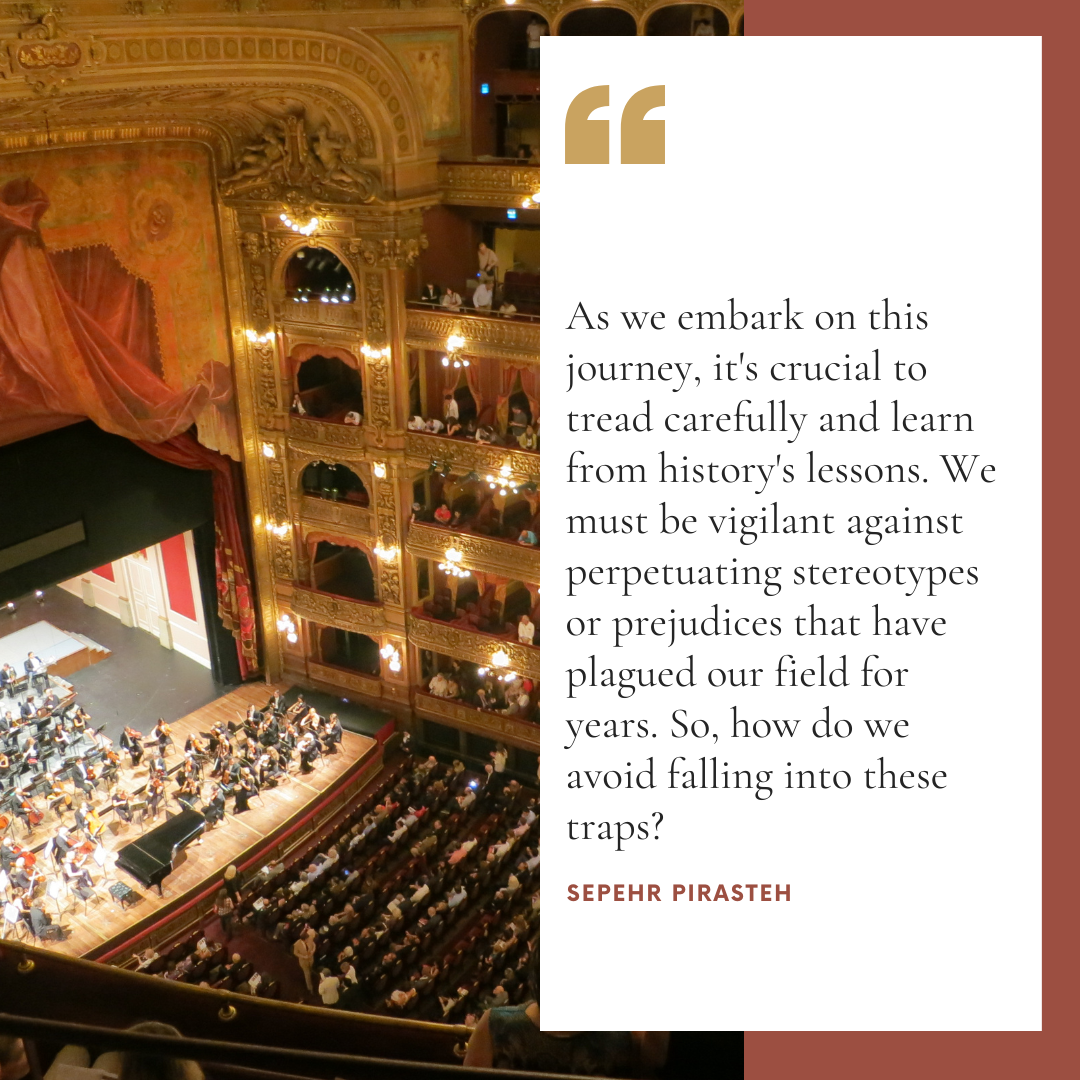In the ever-evolving landscape of the music field, there’s a growing recognition of the need to diversify concert programs and decolonize our musical repertoire. But how can we effectively navigate this complex terrain?
Community engagement emerges as a pivotal strategy in this endeavor. The Presser Foundation hosted a Next Movement Series session in September 2023 about centering community voice in the artistic process. A link to the blog post which contains information on accessing the recording can be found here.
When commissioning composers or performing music rooted in specific communities, actively involving those communities becomes paramount. By engaging with local groups and ensuring they are aware of our music programs, we not only foster inclusivity but also amplify the voices of underrepresented communities.
However, as we embark on this journey, it’s crucial to tread carefully and learn from history’s lessons. We must be vigilant against perpetuating stereotypes or prejudices that have plagued our field for years. So, how do we avoid falling into these traps?
Research emerges as a cornerstone of our efforts. Delving into the works we intend to perform allows us to ensure cultural accuracy and guard against the exoticization of other cultures. Consider this scenario: performing a piece by a composer outside a certain culture that incorporates elements from that culture. While the intent may be to diversify the program, this approach risks misrepresentation. Instead, conducting thorough research enables us to identify composers from within a certain culture who authentically explore these themes.
For example, rather than simply selecting a composer who superficially incorporates elements of a specific culture, we can seek out composers from within those cultures who offer genuine insights and perspectives. This not only enriches our programming but also honors the authenticity of diverse voices. Read more about problematic operas and their productions such as Turandot, and Madam Butterfly here.
Moreover, cultural sensitivity should extend beyond musical content to encompass every aspect of concert production. From promotional materials to performance contexts, we must ensure that our practices uphold respect and dignity for all cultures involved.
Ultimately, the pursuit of diversity and cultural equity in concert programming is a journey that demands ongoing reflection, dialogue, and action. By prioritizing community engagement, conducting rigorous research, and embracing cultural sensitivity, we can create concert experiences that celebrate the richness and diversity of our global musical heritage.
As we navigate this path, let us remain committed to fostering inclusive spaces where every voice is heard, honored, and celebrated. Together, let’s orchestrate a future where music serves as a bridge that unites diverse communities in harmony.








